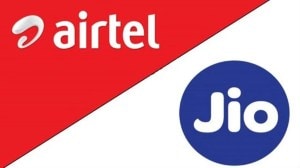ADC Therapeutics recently announced plans to discontinue the Phase II LOTIS-9 trial investigating the combination of Zynlonta and rituximab in unfit or frail previously untreated diffuse large B-cell lymphoma (DLBCL) patients following reports of excessive respiratory-related treatment-emergent adverse events. The company disclosed that it will cease its investigation of the Zynlonta-rituximab regimen in this patient population. As a result, Zynlonta’s clinical failure will increase opportunities for competing antibody-drug conjugates (ADCs) in DLBCL, says GlobalData, a leading data and analytics company.
According to GlobalData’s analyst consensus forecast, prior to the clinical trial failure, Zynlonta’s projected annual sales were expected to reach $408 million by 2029. However, the negative trial results will impact this value, especially as competition increases. Zynlonta is an ADC directed to tumor cells expressing CD19, which is internalized upon binding and releases its cytotoxic payload, leading to cell death.
ADCs possess a commercial advantage over other therapies for their ability to precisely target cancer cells while minimizing systemic drug distribution. ADCs are also relatively well-tolerated and inexpensive in comparison to therapies such as CAR-T cell therapy with immune-related side effects and the need for costly specialized centers.
Jasminemay Barcelon, Oncology & Hematology Analyst at GlobalData, comments: “Roche’s Polivy, a CD79b-directed ADC, led the revolution of ADCs in DLBCL after approval in 2019 for relapsed/refractory (R/R) patients. Zynlonta’s approval in 2021 as monotherapy was expected to compete with Polivy as the only other marketed ADC in the R/R DLBCL setting. However, ADC Therapeutics has faltered following the recent trial discontinuation of its only marketed agent. Although ADC Therapeutics may recuperate from its loss by continuing Zynlonta’s investigation in other patient populations, this presents an opportunity for Polivy and other ADCs currently being developed for this indication.”
ADCs including Seagen/Takeda’s Adcetris, Merck’s zilovertamab vedotin, and Debiopharm’s naratuximab emtansine have entered clinical evaluation with hopes of also gaining approval in R/R DLBCL. Adcetris, a CD30-directed ADC, in combination with lenalidomide and rituximab for R/R DLBCL patients in the ongoing Phase III ECHELON-3 study reported an acceptable safety profile following favorable responses in a Phase I study evaluating the Adcetris and lenalidomide combination.
The ongoing Phase III study of zilovertamab vedotin targets ROR1 and has shown clinically meaningful antitumor activity and a manageable safety profile based on early Phase II results. In the completed Phase II study of naratuximab emtansine, a CD37-directed ADC, in combination with rituximab presented good overall response and complete response rates. The table below summarizes the current late-stage ADCs in DLBCL with annual sales value by 2029 based on GlobalData’s analyst consensus forecast.
Barcelon continues: “Although Adcetris boasts predicted total sales of approximately $2 billion and anticipates success based on promising Phase I clinical trial results, zilovertamab vedotin presents as a viable competitor in terms of efficacy as it continues to show encouraging results in heavily pretreated DLBCL. Similarly, naratuximab emtansine demonstrated impressive overall Phase II results and the attractive attribute of improving patients’ quality of life for the third-line setting.”
Polivy is the only ADC to tout a front-line approval in combination with R-CHP due to its improvement on progression free survival. Other companies, including ADC Therapeutics, have shifted towards targeting R/R DLBCL patients with no plans to evaluate these ADCs in the front-line setting.
Barcelon concludes: “Currently, the focus for ADC development appears to be the second- and third-line setting following the approval of Zynlonta and Polivy in R/R DLBCL. Therefore, it is unclear which of the ADCs in the pipeline could infiltrate the first-line setting following Polivy. In the meantime, Zynlonta and Polivy can enjoy a stable patient share in R/R DLBCL while competition ramps up with emerging technologies including other ADCs, bispecific antibodies, and monoclonal antibodies.”









